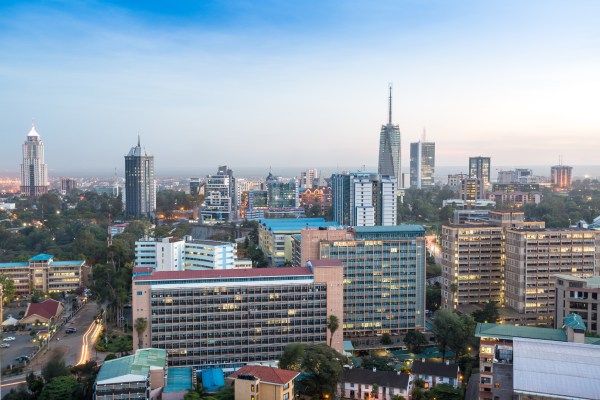As the fallout from COVID-19 continues to grip Africa’s major economies, the tech ventures in those countries need state support.
National legislation that creates clear frameworks and operational support for startups are one of the best ways to help Africa’s digital companies survive and thrive through the coronavirus crisis — and improve their environment over the long term.
Africa has dozens of thriving startup ecosystems that are persevering through this crisis, but now more than ever, they need a boost. The gains made by founders thus far are in danger due to the ongoing economic slowdown. The World Bank estimates that economic growth in sub-Saharan Africa alone will decline from 2.4% last year to -2.1 to -5.1% this year. If correct, the region will experience its first recession in a quarter of a century.
Now is the time for something that was already long-overdue in many African countries: political leaders should support startups through national startup acts.

Village Capital’s Adedana Ashebir, Image Credits: Village Capital
Last December, Senegal became the second African nation to enact a national Startup Act, following Tunisia’s landmark bill that passed in April 2018. Other countries may follow soon: startup legislation was being discussed in Ghana and Mali before the novel coronavirus monopolized headlines.
The rest of the continent can learn a lot from Tunisia, which passed its Startup Act in 2018 after receiving input from entrepreneurs and economists. In addition to clarifying rules surrounding angel, seed and venture capital funding, the act bestows benefits on companies designated as startups. This includes alleviating their tax and social security contribution burdens, providing access to forex bank accounts and offering subsidized salaries for founders. More than 50 startups have taken advantage of the “startup” label. A number of Tunisian entrepreneurs have told me that thanks to the new legislation, they are able reinvest savings from these incentives back into their businesses.
Perhaps the most important reason for startup legislation in the age of COVID-19 is to create appropriate legal frameworks. In Africa’s major tech hubs, startups are typically in a legal grey zone. They’re not corporates and the usual protections and provisions to support SMEs fall short.
For example, I’ve spoken to Kenyan startups that can only find commercial office space for rates paid by large corporations. In Uganda, entrepreneurs pay $10,000/year for a USSD code required to communicate with cellular networks. These are just two of countless examples where startups lack the enabling environment they need. With the right legal frameworks and tax/financial incentives, startups would be in a better position to survive in the near-term and eventually thrive. It would also help would-be founders take the risk in the first place. Tunisia has seen an increase in founders starting ventures and an increase in investor interest inspired by tax incentives since passing its Startup Act.
Beyond legal frameworks, startups need help across the board, with connectivity, affordable rent, customs facilitation, R&D, human capital, grants and investment capital. This is now more important than ever as ventures shift to working from home amid increased lockdowns, curfews and growing concerns about supply chains and consumer appetite in coming months.
Startup legislation can incentivize certain sectors that show promise for innovation. Startup acts should encourage and increase hardware/sciences startup development and support. Those areas do not receive enough attention and could offer the continent some important solutions across multiple sectors, including healthcare, agriculture and energy.
Lastly, startup acts can support the scale of African-built solutions regionally and beyond the continent. In the future, I envision startup policies for regional blocks such SADC, ECOWAS and COMESA. In the meantime, national acts such as the ones Tunisia and Senegal passed are a good place to start. A regional strategy, however, could lead to further expansion of ventures, increased intra-African trade and much needed job creation, all outcomes that may be even more needed in the post-COVID era.
Surprisingly, the continent’s biggest startup hubs are behind the curve. Nigeria, South Africa and Kenya all lack clear legislative frameworks that support their startup entrepreneurs, leaving them vulnerable to the economic downturn caused by COVID-19. In an effort to counterbalance that, startups in these countries are working hard to pivot by changing business models and creating new product lines. However, they undoubtedly will need support from national governments to make it through the pandemic.
Africa has the potential to be a more robust creator and exporter of technologies, but only if the right frameworks are put in place to help entrepreneurs build, scale and market their solutions on and beyond the continent.

